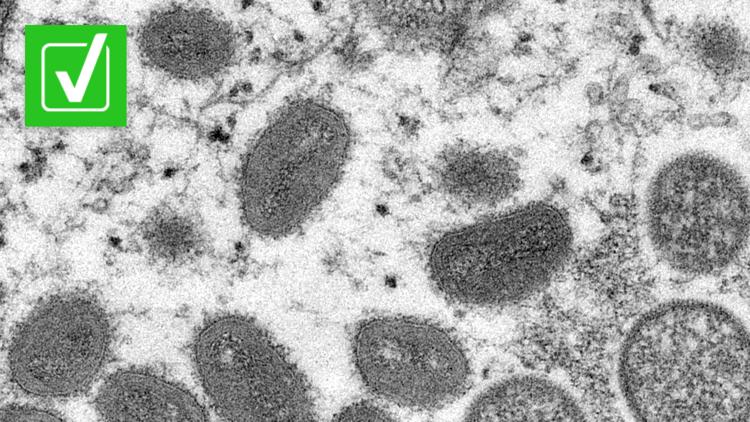There haven’t been any monkeypox deaths reported in the U.S. as of Aug. 2, and fewer than 10 deaths reported worldwide amid the current outbreak.


On July 23, the World Health Organization declared the current monkeypox outbreak a public health emergency of international concern. As of August 2, cases of monkeypox have been detected in at least 80 countries, data from the Centers for Disease Control and Prevention shows.
VERIFY has been fact-checking claims about the monkeypox virus since the first case was detected in the U.S. in May.
One VERIFY viewer messaged us to ask if there have been any monkeypox deaths in the United States since the outbreak first began.
THE QUESTION
Have there been any monkeypox deaths in the U.S.?
THE SOURCES
THE ANSWER
![]()
No, there haven’t been any monkeypox deaths reported in the U.S. as of Aug. 2.
WHAT WE FOUND
The World Health Organization publishes situation reports every week on the current monkeypox outbreak. The latest report included data from WHO member countries up to July 22, and was published on July 25.
So far there have been zero confirmed monkeypox deaths in the U.S., according to WHO and the Centers for Disease Control and Prevention (CDC).
Data from the CDC shows that as of August 1, there have been 5,811 confirmed cases of monkeypox in the U.S. Each state, with the exception of Montana and Wyoming, has detected cases of monkeypox.
According to WHO data, as of July 22, there have been 16,016 confirmed monkeypox cases worldwide and five confirmed monkeypox deaths in the African region.
There have been additional monkeypox deaths reported in other regions of the world. Spain has reported two deaths from monkeypox. Brazilian health officials said one man had died, and said that man also suffered from lymphoma and was immunocompromised. In India, health officials confirmed one person died who had contracted the virus while traveling abroad.
Previous monkeypox outbreaks in recent times have had a case fatality rate of about 3-6%, the WHO says. A death rate for the current outbreak worldwide has not been established.
According to WHO, with the exception of areas in Africa where monkeypox has a history of transmission, the current monkeypox outbreak is largely being reported among men who have sex with men, who have had recent sex with one or multiple partners. The CDC says transmission in the United States is being seen among the same community.
According to Mark Slifka, Ph.D., so far the virus has not spread significantly among populations in the U.S. that are more susceptible to severe monkeypox disease.
“Kids are more susceptible to a lethal infection, as well as people who are immunocompromised, for instance, a person with cancer or taking chemotherapy or immunosuppressive drugs or have untreated HIV,” Slifka, who studied infectious diseases and vaccine development during the 2003 monkeypox outbreak that happened in the U.S., told VERIFY.
“The good news is, if there is good news, is that young, healthy adults have a lower risk of mortality. But that doesn't mean this is a disease that you want to ignore. It's very important to reduce these transmissions because it can spread to other household contents, to other family members, including these more susceptible and vulnerable populations,” he said.
If you have a new or unexplained rash or other symptoms, the CDC says it is important to avoid close contact with others, including sex or being intimate with anyone, until you have been checked out by a healthcare provider.
The Food and Drug Administration (FDA) approved a vaccine that would prevent monkeypox and smallpox in 2019. The Jynneos vaccine is administered in two doses and is recommended for individuals 18 and older that are at high risk for monkeypox. The CDC has a list of current eligibility for the vaccine:
1. Known contacts who are identified by public health via case investigation, contact tracing, and risk exposure assessments
2. Presumed contacts who may meet the following criteria:
Some states have expanded their eligibility criteria beyond what the CDC has recommended. If you have questions about your state’s vaccine eligibility criteria, contact your local health department.
The Associated Press contributed to this report.
The VERIFY team works to separate fact from fiction so that you can understand what is true and false. Please consider subscribing to our daily newsletter, text alerts and our YouTube channel. You can also follow us on Snapchat, Twitter, Instagram, Facebook and TikTok. Learn More »
Follow Us
Want something VERIFIED?
Text: 202-410-8808


















 English (United States) ·
English (United States) ·